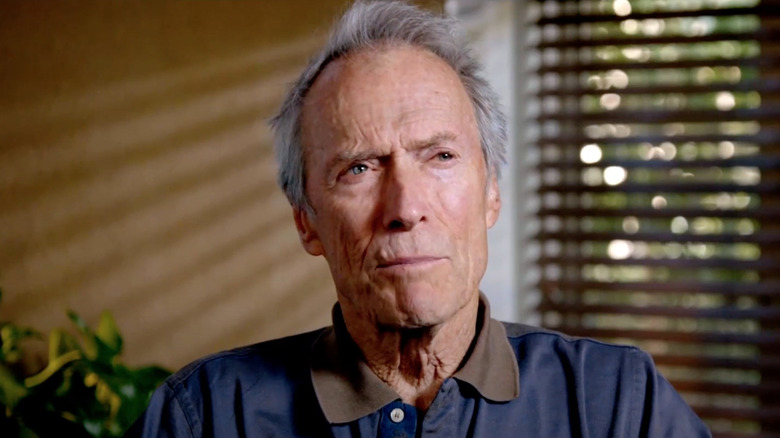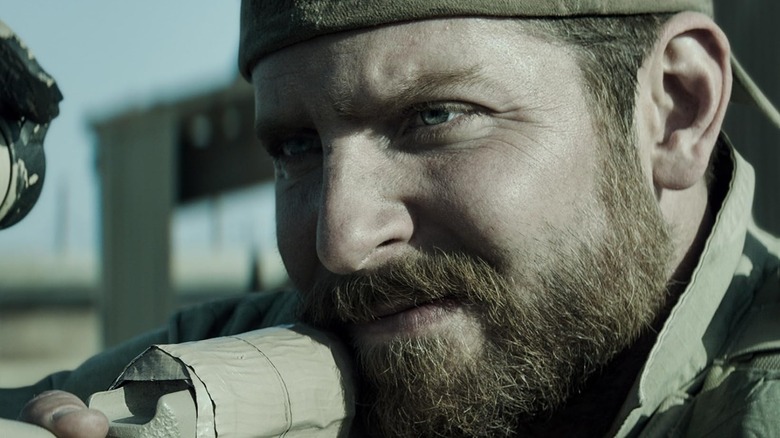Clint Eastwood Called His Oscar Winning War Movie Steven Spielberg's 'Leftovers'
Clint Eastwood and Steven Spielberg have each won two Best Director Oscars. They are peers and, by all accounts, friends. But they couldn't be more different as filmmakers.
Eastwood was born in 1930. He was surly, rebellious and athletic. While preparing to get shipped out to the Korean War in the 1950s, he reportedly survived a plane crash of a Douglas AD bomber that crashed into the Pacific Ocean in Marin County, just north of his hometown San Francisco; he swam two miles back to shore and was subsequently discharged. He later found moderate fame as cowboy Rowdy Yates in the CBS television series "Rawhide" before flying off to Spain and teaming up with Italian filmmaker Sergio Leone to make the Spaghetti Western "Dollars Trilogy." In 1971, he became a double threat by directing and starring in the moody thriller "Play Misty for Me," while also establishing himself as a due-process-flouting action hero in Don Siegel's "Dirty Harry."
Spielberg was born in 1946 and was a filmmaking prodigy by the age of 13. He was short, awkward, and committed to an artform that, for the most part, only the French proponents of the Nouvelle Vague viewed as an auteurist medium. They called them "pictures" when the teenaged Spielberg honed his craft as a camera-wielding autodidact. By the time he made his first truly notable feature, "Duel" (which was shot for NBC Television but so sweatily suspenseful that Universal released it in theaters), he was clearly destined for great things in the film industry. Universal VP Sid Scheinberg believed in Spielberg and stuck with him through the difficult production of "Jaws." He would go on to become arguably the greatest filmmaker of his generation.
Where Spielberg was a maestro of sentimental escapism over the first decade of his career, Eastwood generally knocked out rowdy crowd-pleasers. Their paths finally crossed in 1995 with the Amblin-produced "The Bridges of Madison County" (one of Eastwood's best movies), and they hooked up again in the 21st century when Spielberg handed the directorial reins of "Flags of Our Father," "Letters from Iwo Jima," and "American Sniper" over to Eastwood. The older filmmaker would joke that he was taking Spielberg's "leftovers," but I think he understood that Spielberg knew his friend's spare sensibility was better suited to these projects — particularly on "American Sniper."
Spielberg correctly viewed American Sniper as a Clint Eastwood movie
In a 2015 interview with The Hollywood Reporter, Eastwood acknowledged that Spielberg was set to direct Bradley Cooper in "American Sniper" until the one-time wunderkind felt overwhelmed by the material. Interestingly, Eastwood didn't leap at the opportunity. As he told THR:
"Bradley Cooper and I read about it, and I didn't think too much of it. And I did ... I was reading the book, and then, all of the sudden, the studio calls me up and said, 'Would you direct 'American Sniper?” And I said, 'Somebody else, Steven's doing that,' and I go, 'What are you talking about?' And they said, 'No, no, that fell out, but we'd all love it for you to come over there.' And so I said, 'Well, let me finish the next 30 pages of this book here, and then I'll give you a call.'"
Eastwood provided some notes and he eventually felt the project was in good enough shape to take it on. But he also felt compelled to call Spielberg. "I told him, I said, 'I'm taking your leftovers again,'" Eastwood added.
These were pretty choice leftovers. The film received six Academy Award nominations, including one for Best Picture. Alan Robert Murray and Bob Asman won an Oscar for Best Sound Editing. It also grossed $548 million at the global box office against a $59 million budget, which is high for Eastwood. (The fake baby, alas, was snubbed.) Should Spielberg have been shopping projects to Eastwood prior to "Bridges of Madison County?" God yes. I'd give anything to see the no-nonsense auteur's takes on such feel-good, visual effects-heavy Amblin hits as "The Goonies," "Harry and the Hendersons," and "Batteries Not Included." More than anything, I'd love to see Eastwood's "Hook," where the father's a blue-collar slugger who isn't absent, he's just working and going back to Neverland is treated as a regression. I'd also like to see Spielberg's "The Outlaw Josey Wales," if only because we need to get one honest-to-god Western out of the man before he hangs 'em up for good.

